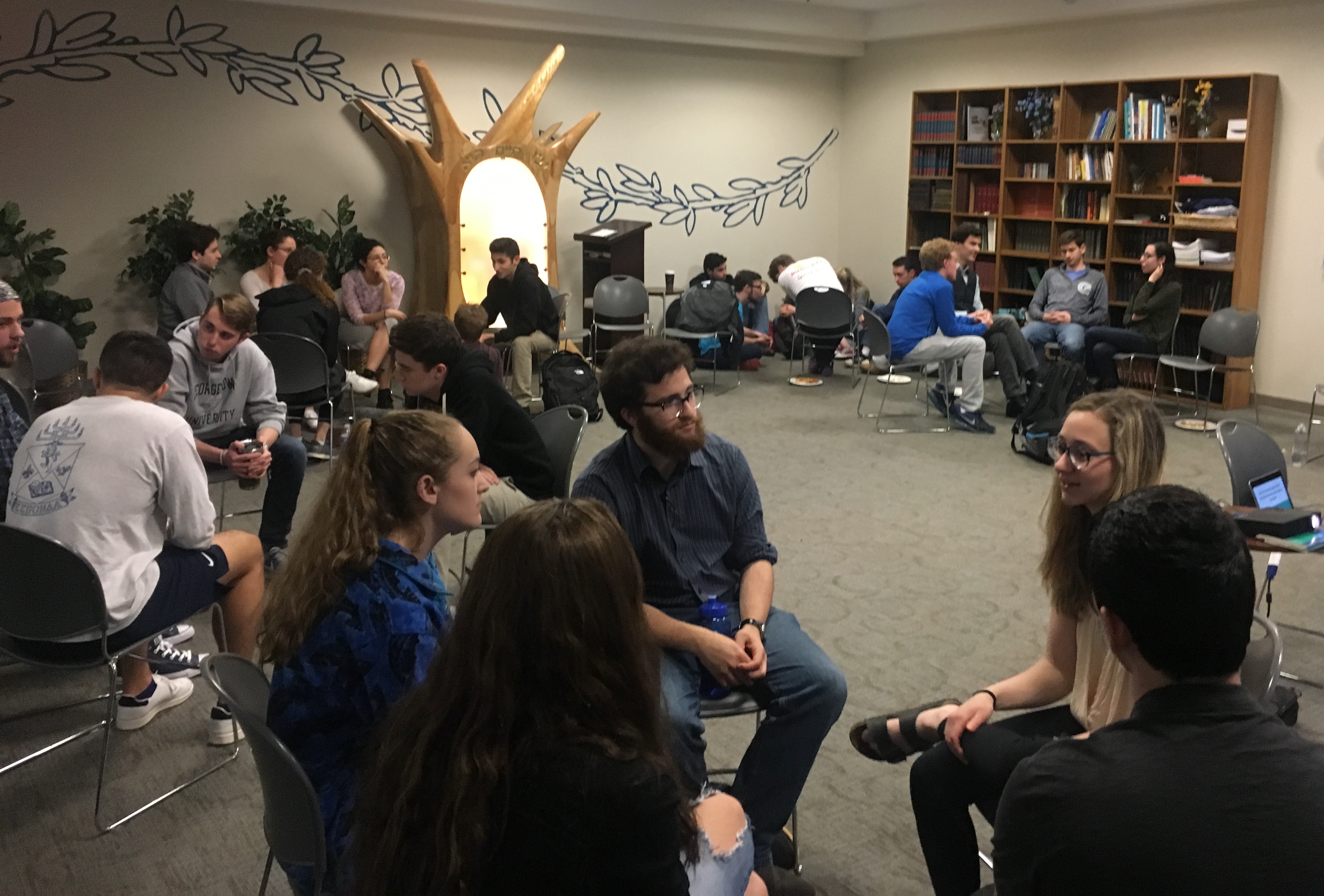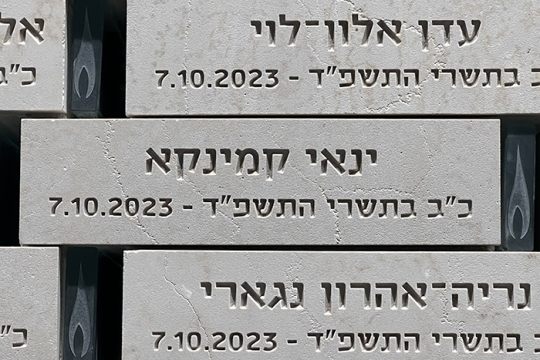
Just as each of us must work to end gender-based violence in our country and world, we are also responsible for challenging our own community – namely the Reform Jewish community – to address its own issues of sexual assault and harassment. I take inspiration from the brave Jewish women who are taking these problems in the Jewish community into their own hands, translating #MeToo into #GamAni, and bringing needed attention to the experiences of our community's survivors of assault and harassment. We must create conversations and ask hard questions, fostering a culture of brave outspokenness. This year, I have been on a journey to tackle issues of gender-based violence in my own college's Jewish community, giving my peers the tools to make change more broadly on our campus and across the globe.
After nearly four years of working on education and advocacy around issues of sexual assault on my college campus, I have learned that gender-based violence is rooted in distortions of power and control. Perpetrators of sexual violence and harassment feel entitled to the bodies of others. They feel empowered to act because of how our larger culture objectifies people's bodies, portrays sex, and disregards the importance of consent. As a peer educator, I have facilitated workshops with many of my college peers, creating a space for them to think deeply about how larger dynamics in our world give perpetrators a sense of power and control, and how our communities can do a better job of supporting survivors.
I have also learned that on my college campus, and campuses around the country, it is extremely difficult to create conversations that empower people to take concrete action in their own lives and communities. However, when dialogue is set up such that the people engaged feel ownership and a sense of responsibility, real change can happen. Without a sense of obligation toward one's own community, it can be difficult to take the next steps of speaking out and challenging others to do the same.
Every year, during April, my college campus rallies around Sexual Assault Awareness Month. We have events, film screenings, and awareness campaigns to bring attention to widespread issues of gender-based violence. I realized this year that I had a unique opportunity to create a Jewish community-based conversation about these issues that would imbue its members with a feeling of responsibility toward one another and the courage to continue dialogue.
In January, I decided that it was now or never -- I was about to graduate. I contacted a sexual assault specialist and educator on my campus to see if she would be interested in crafting a workshop for the Jewish community about gender-based violence during Sexual Assault Awareness Month in April. We sat down to think through the framing of the conversation and how we would make sure it was by and for the Jewish community. Her prior experience working at the Jewish Coalition Against Domestic Abuse deepened our brainstorming sessions and the flow of the workshop. Her support was critical to the success of the event. Leading up to the workshop, I met with leaders in our campus Jewish community from the Jewish Student Association, Israel advocacy and cultural groups, the Jewish fraternity, and with our campus Rabbi and her colleagues. Getting buy-in from these leaders was critical, because it signaled to our broader community that the workshop was important and that members had an obligation to attend. I advertised the workshop, highlighting the partners that had signed on, across every medium I could get my hands on. Using social media posts, group messages, emails, in-person conversations, announcements at Shabbat dinners, and one-on-one messages, I worked to make sure every Jewish student on campus had heard about it.
It was an incredible success. Students filled our Jewish gathering place, asked hard questions, and probed into the issues that our community and larger campus face. In small groups, we discussed how dynamics at parties contribute to gender-based violence, and how the close-knit nature of our Jewish community can make it difficult for survivors of sexual assault and harassment to speak out. We addressed the central issues of power and control and challenged ourselves to consider what we might do if we found out that a member of our community was a perpetrator of gender-based violence. We also ate a delicious dinner together.
In the weeks afterward, I was approached by students across the community who told me how meaningful the conversation was and how they will continue this dialogue into the future. I am so proud of my campus Jewish community and excited to see a new generation of leaders take on the responsibility of asking difficult questions and speaking out.
I believe that we can change the culture of gender-based violence. If we begin with our communities, pushing those around us to have hard conversations about how implicit norms empower perpetrators and how we can challenge ourselves to better support survivors, we can start to create an environment of courageous outspokenness in our broader world.
Next steps:
- Learn about the RAC's sexual assault prevention work and use our toolkits to make change in your own community
- Get involved with NFTY's Sexual Violence Prevention Campaign
If you or someone you know has been affected by sexual violence, it’s not your fault. You are not alone. Help is available 24/7 through the National Sexual Assault Hotline: 800.656.HOPE and online.rainn.org. For support in dating violence situations, text LOVEIS to 22522.
Related Posts

In Solidarity and Sorrow: Bearing Witness to the First Anniversary of October 7th

URJ and Israel: Post-October 7th Updates and Resources

